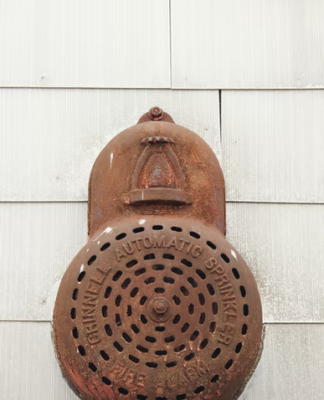You may have many questions about Depression: Do I have it? What causes it? What treatments are best? Let’s delve into what constitutes depression and give a concise and easy overview.
What is Depression?
Depression is a common mental health condition that causes a persistent feeling of sadness and loss of interest that ultimately interferes with your daily functioning.
Types of Depression
- Major depressive disorder (MDD): Major depression (clinical depression) has intense or overwhelming symptoms that last longer than two weeks. These symptoms interfere with everyday life.
- Bipolar depression: People with bipolar disorder have alternating periods of low mood and extremely high-energy (manic) periods.
- Perinatal and postpartum depression: “Perinatal” means around birth. Many people refer to this type as postpartum depression.
- Persistent depressive disorder (PDD): PDD is also known as dysthymia. Symptoms of PDD are less severe than major depression, but more persistent.
- Premenstrual dysphoric disorder (PMDD): Premenstrual dysphoric disorder is a severe form of premenstrual disorder (PMS). It affects women in the days or weeks leading up to their menstrual period.
- Psychotic depression: People with psychotic depression have severe depressive symptoms and delusions or hallucinations.
- Seasonal affective disorder (SAD): Seasonal depression, or seasonal affective disorder, usually starts in late fall and early winter. It often goes away during the spring and summer.
Signs that you have Depression
If you have been feeling down for more than two weeks and have lost interest in activities you used to enjoy, you may be suffering from depression. Other symptoms of depression include feeling tired or having no energy, changes in appetite, difficulty concentrating, feelings of worthlessness or guilt, and thoughts of suicide.
4 Major Causes of Depression
1. Family history
Though there are no specific genes that we can look at to predict a person’s probability of depression, if your family members have had depression, you are more likely to experience depression. The jury is still out on whether this link is due to learned behavior or biology.
2. Illness and health issues
Physical illnesses or injuries can have a significant impact on your mental health. Chronic health issues, long-term health issues, or physical health issues that drastically change your lifestyle can cause depression. Often, your doctors will understand this and may even offer mental health treatment as a part of your overall treatment. Issues connected to your brain, hormones, menstrual cycle or menopause, low blood sugar, or sleep problems can be very impactful.
3. Medication, drugs, and alcohol
Many different medications can have the unfortunate side effect of depression. If you feel depressed after starting a new medicine or medication, you should research its side effects or talk to your doctor. There could be an alternative that won’t cause these side effects for you. Additionally, recreational drugs and alcohol use can also cause or worsen depression. While they may initially feel like they help symptoms of depression, they will make you feel worse over the long run.
4. Personality
Some people and personalities are just more apt to experience depression. For example, people who tend to hold in worries and stress, have low self-esteem, are perfectionists, and are sensitive to criticism are naturally more likely to be depressed.
Additional causes of depression
In addition to those causes, two of the more abstract causes of depression can be:
Life Events
It has been found through research that life events can increase your chances of being depressed. Examples of events like this include:
- Losing your job
- Being in a dysfunctional relationship
- Stress at work
- Isolation
- Going through a breakup or divorce
- Being diagnosed with an illness
- Being unemployed for a long time
- Grieving a loved one
Treatments for Depression
Exercise
People who are depressed may not feel much like being active. But get yourself to do it anyway. If you need a push, ask a friend to do it with you. Getting any activity started helps boost your mood. Keep it going. Exercise may have a small effect on treating acute depression, but is great in preventing future episodes.
Eat healthy foods
Some people with depression don’t feel much like eating. Some may overeat. But what you eat can affect your mood and energy. So with depression, you need to be sure to eat right. For most people, that means plenty of fruits, vegetables, and whole grains. Limit simple carbs and foods with added sugar. Don’t go for too long without eating. Even if you don’t feel hungry, eat something light and healthy.
Don’t dwell on problems
It can feel good to talk through a problem with a caring friend. But depression can lead people to complain, blame, and rehash problems too much. It can keep you focused on what’s wrong.
Focus on people who lift you up
Interact frequently with others that bring you up (not people that bring you down). While it’s OK to have some alone time, find a balance and don’t isolate yourself or the depression will linger.
Express yourself
With depression, your creativity and sense of fun may seem blocked. But it can help to do things that get your creative juices flowing. Paint, draw, or doodle. Sew, cook, or bake. Write, dance, or compose music. Chat with a friend or play with a pet. Find something to laugh about. Watch a funny movie. Do things you can enjoy. Even a little. That helps turn depression around.
Try to keep a regular sleep schedule
Getting plenty of rest every night is a must for your mood. People with depression often have noticeable sleep disturbances — they either sleep too much or not enough. Go to bed and wake up on a regular schedule, and never skimp on your Sleep. Feeling run-down will exacerbate your symptoms of depression and make it more difficult to be social, get exercise, and manage stress.
Boost Your Self-Image
People with depression often experience low self-esteem, so finding ways to feel better about yourself is an important aspect of treatment. Practice positive thinking by focusing your thoughts on your best qualities. You can also make lifestyle changes that can improve your self-esteem, such as eating a healthy diet, getting regular exercise, and spending time with friends who make you feel good about who you are.
Talk to a Therapist
Working with a therapist is often an important part of successfully managing depression.
If you’re interested in over the counter supplements such as SAMe and St. John’s wort, make sure to check with your doctor or pharmacist before starting, especially if you’re already taking medications.
Conclusion
Depression can be a debilitating condition that affects many people around the world. It is important to know how it develops and what some of its symptoms are in order to find ways to cope with depression. This article provides you with information on causes, tips for coping, and where to go if you need professional help. You should also remember that life events (such as losing your job or being diagnosed with an illness) may cause depression even without other risk factors—so always check in with yourself after going through something new so you can identify any potential signs of depression before they get worse!
We offer comprehensive care, professional services, and we accept all kinds of insurance. We serve clients in Long Island, in the New York City areas, including Nassau and Suffolk Counties. Call us at 516-900-7646 for an initial consultation, and we will be more than happy to help you or your loved one overcome depression. Empire Psychiatry

















